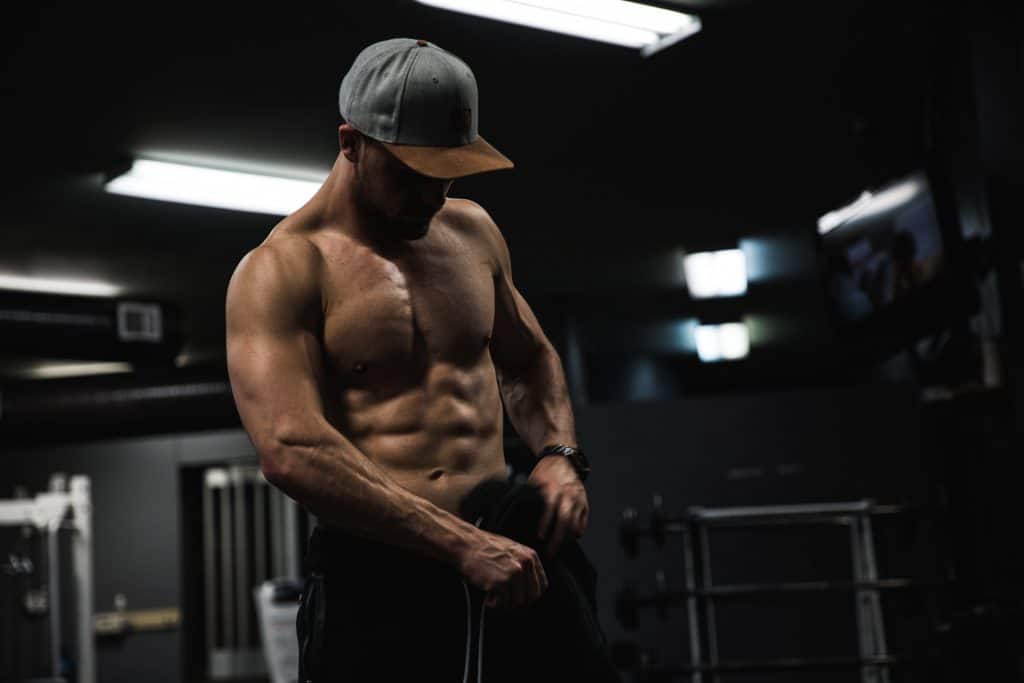In this follow up article, we ask the question. “how much influence does your DNA have over muscle growth?”
We already know that genes, can in some instances, make it easier for a bodybuilder to make specific gains. For example, if you happen to be a mesomorph, you will find it easy to gain muscle.
What is a Mesomorph?
In general, there are three categories or somatotypes of human body types. We have ectomorphs, mesomorphs and endomorphs. We have an article that explains this concept in further detail. Click here to continue reading.
With that in mind, mesomorphs are naturally muscular with a moderate frame, we referred to them in the previous article as “big-boned individuals”. People who have this body type develop a higher volume of muscle than shorter people with small bone structure.
Are Mesomorphs Better at Bodybuilding than the Rest of Us?
No, if you are a mesomorph and you live a sedentary lifestyle, you will become overweight! The same is true with all the other body types.
If you have average genes or find it difficult to develop muscles, what you need is better nutrition and an aggressive training program to pound those muscle fibers into submission.
Factors that Affect Muscle Gain
According to a study published by the University of New Mexico:
“the most adaptable tissue in the human body is the skeletal muscle. Continuous, and carefully designed, resistance exercise training programs can remodel skeletal tissue”
That’s because resistance training leads to injury or trauma of cellular proteins in muscle. That prompts cell signaling messages to activate satellite cells to begin a cascade of events that lead to muscle repair and growth.
Therefore, the factors that influence muscle growth in the human body are:
- Muscle damage: repeated contractions in resistance training causes an inflammatory response that attracts macrophages, neutrophils and lymphocytes to clear debris and release pro-inflammatory myokines such as IL-6.
- Metabolic stress: this is a physiological process that occurs during exercise or lifting. It is a response to low energy that leads to the accumulation of phosphate, inorganic (PI, lactate, and hydrogens of iron in muscle cells.
- Muscle tension: simplifying it, tension helps to build muscle.
The point is, your body type or genes doesn’t matter, we can all build muscle.

It’s worth noting that some individuals have more muscle cells than others. For example, if you have 150 million cells forming in your back muscles, you are more likely to enjoy faster muscle gain, than a person who has 100 million cells or less. I’m not telling you to go count your muscle cells, I’m just saying, you must learn to work with what you’ve got.
What is the role of testosterone in all this?
“Steroids turned me into a man”, says Candace Armstrong, why is that?
What candace did wrong was, she abused steroids.
What some people don’t realize is, steroids are a synthetic form of testosterone. If you are a female bodybuilder the risks associated with abusing steroids include a higher risk of injury, you may develop psychological problems, and it can increase your risk of being childless.
Females also produce testosterone but in small amounts, that’s why some experiment with artificial testosterone or steroids. Some signs that your body is producing more testosterone than it should or sign of steroid abuse include increased axcialliary hair, deeper voice and other male features.
That said, testosterone plays a crucial role in determining bodybuilding success. Research shows, testosterone influences physiological growth.
Male bodybuilders who naturally produce high levels of testosterone develop quickly with rigorous training and they normally have more drive when it comes to lifting.
In men, testosterone affects everything, I am talking about sexuality, bone density, certain behaviors and muscle mass. it is one of the many factors involved in the development of strength and muscle bulk, it increases bone density and it tells the bone marrow to manufacture red blood cells.
Should I Use Steroids to Gain Muscle Faster?
You are an adult; I can’t tell you what to do and what not to do, instead, what I can do is show you the risks associated with synthetic male hormones.
If you are considering going down this route, for health reasons, we recommend that you talk to your doctor. Also, make sure that you understand and are comfortable with the risks.
So, how much influence does DNA have over muscle growth?
As we have seen, some people respond much better than others to training, but, whatever life throws at you, be it bad genes or anything else, there are things you can do to overcome your limitations or weaknesses.
Also, your body type doesn’t matter. If the goal is to build muscle and you put in the work and keep an eye on your nutrition, success is all but guaranteed.
The point is, stop making excuses, your genes are not the problem. The problem is you, and maybe the people around you. Remember, the three main factors that affect muscle growth are muscle damage, muscle tension and metabolic stress.
Conclusion
In conclusion, I understand why some people think they have bad genes, you work hard but see very little changes. We are all different, it may take a little longer and more work for you to reach your bodybuilding goals but in the end. It will all be worth it! Don’t waste money on DNA tests or other tests that may limit you, instead, learn to work with what you’ve got. And have fun.
Bad genes, in my opinion, is an excuse some people use to justify laziness. John Fixx, who is the head of country school in Madison says “we can’t control the DNA we are given, but we can live with it”. So, what your excuse?
You have the energy; you have the time. you now know that factors that affect muscle gain, what’s holding you back are your own thoughts and insecurities. Get the full guide and start working on that.
